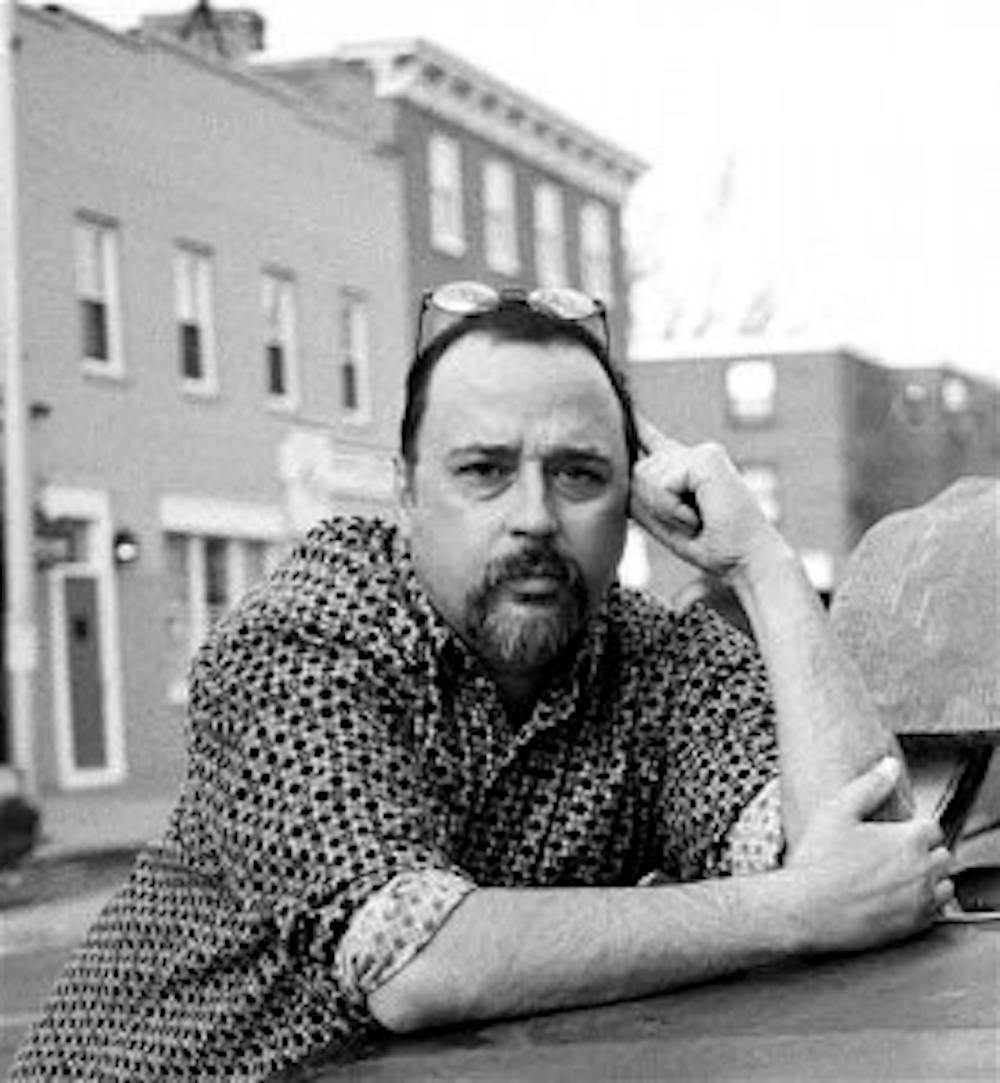Speaking in the small auditorium with only a chair on stage, Alvarez created an informal, conversational tone while addressing his audience. Speaking at other venues like the Maryland Writers Association, Alvarez has chosen to emphasize writing rather than business in his talks.
“If the first question is ‘how do I get an agent,’ then I’m not interested in talking to you,” Alvarez said. “But, if the question is, ‘I have this character, and I can’t stop thinking about him or her, and I need to get this character from here to here,’ that’s the conversation that I want to have.”
While attending Loyola College, Alvarez began writing for City Paper — only a growing publication at the time — and also worked for The Baltimore Sun’s circulation department. He worked his way up from circulation, and his career writing articles for The Sun spanned from 1977 through 2001. The Sun has also published two anthologies of Alvarez’s journalism: Hometown Boy (1999) and Storyteller (2001).
“I’ve got 35 years of writing experience. If any of that can help you guys tell better stories, [that] is sort of what it’s all about,” Alvarez said.
Alvarez also notably began writing television screenplays and working with David Simon, a former colleague from The Sun, on shows set in Baltimore like Homicide: Life on the Streets and The Wire.
Comprising 60 episodes over five seasons, The Wire aired on HBO on June 2, 2002, and ended on March 9, 2008. Alvarez contributed three teleplays during the show’s first three seasons and also wrote a guide book on the series called The Wire: Truth be Told.
Despite continuing to write scripts while living in Los Angeles, Alvarez compared the West Coast business to the dating site Tinder, as writers find themselves constantly glossed over by marketing advisors. As a result, he recently has preferred to spend more time in his hometown, Baltimore.
“Narrative is not science,” Alvarez said. “Truth comes in many, many versions. We’ve got upwards of 30 people in here, maybe a little more. You think you know what your story is, as you would tell it to the degree that you know yourself, but I could interview you — my friend Rick Yeagley, who’s in the back and also a local filmmaker, could interview you. We’d come up with different versions of how to tell whatever the truth of your story was, and we could go on like that for infinitum.”
In his brief presentation, Alvarez mentioned recent, less ambitious projects in his career, like working on a romantic comedy with his daughter and writing short stories. Before his talk, he also distributed some pamphlets celebrating the life of a dear friend, who passed away and was also a Baltimore reporter.
“I write a lot of stuff that I don’t get paid for, but it’s what I want to do,” Alvarez added.
Concluding his presentation, Alvarez gave insight into his views on writing and moved quickly into the discussion section of the event.
“There are those who believe that the human necessity to tell stories to one another is not quite up there with air and food, but real darn close,” Alvarez said. “We tell each other stories to know who we are, to remember who we are.”
His initial presentation lasted about 15 minutes, but the extended question and answer portion provided Alvarez with better talking points. He began to focus his discussion once he directly addressed specific audience questions.
Drawing from his own experience, Alvarez gave advice on various writing issues. For instance, he shared his experience with writing partners. Alvarez, who considers himself more of a hermit and does not express initial interest in others’ ideas when it comes to writing, compared a writing partnership to a marriage.
“If you’re looking for a writing partner or if it’s something that you’re going to do, depending on the degree of marketability to have in mind for your script, find that person that has what you don’t and you have what they don’t,” Alvarez said.
Owing to his journalistic background, Alvarez himself admitted that while he has a strong command of dialogue and character, he is not so skilled in constructing plot. As the questions continued, the audience learned more about Alvarez’s Baltimore writing roots including his desire to be a folklorist, explaining Baltimore to the native Baltimorians.
Another question that punctuated Alvarez’s discussion was about his personal writing process. Alvarez described tedious rewriting and a 10-hour day consisting of “two mornings.” Utilizing the refreshed feeling he has after waking up, Alvarez takes a midday nap to summon up fresh, original ideas, helping him to accomplish the part of the creative writing process he finds most difficult.
After a few more questions ranging from inquiries on the specifics of script writing to his own favorite childhood books, Alvarez concluded the discussion. His next book, which chronicles the murals of the Baltimore Love Project, as well as the 80-90-year history of murals in Baltimore, plans to be released in February 2015.
Although Alvarez concludes their fall season, BAM already has plans for the spring semester: They are inviting their next speaker, visual artist, composer and musician Paul Rucker.
Interested students can find more information about BAM on the group’s Facebook page.





